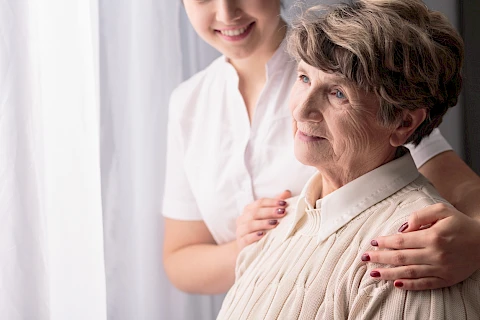
World Alzheimer's Month is an opportunity to raise awareness and offer support for those affected by Alzheimer’s disease. For seniors and their caregivers, navigating the complexities of Alzheimer’s can be challenging. This guide provides insights into recognizing early signs, exploring treatment options, and accessing valuable resources. It also offers advice on handling difficult conversations about the disease with family members.
Recognizing Early Signs of Alzheimer's
Identifying Alzheimer's early can be beneficial in managing the disease and planning for future care. Common early symptoms include:
- Memory loss that disrupts daily life
- Difficulty solving problems
- Challenges with familiar tasks at home or work
- Confusion about time or place
- Trouble understanding visual images
- Problems with speaking or writing
- Misplacing things and losing the ability to retrace steps
- Poor judgment and decision-making
- Withdrawal from work or social activities
- Changes in mood and personality
If you notice these symptoms, it’s important to consult a healthcare professional for a thorough evaluation. Early diagnosis allows for timely intervention and better preparation for the changes ahead.
Treatment Options for Alzheimer's
Currently, there are medications available that can help manage symptoms of Alzheimer’s, such as memory loss and confusion. These treatments may slow the progression of the disease and improve quality of life. You can discuss options with a healthcare provider to determine the most suitable approach.
In addition to medications, non-medical strategies can support cognitive health. Engaging in mental exercises, maintaining a healthy diet, and participating in social activities can contribute to overall well-being. Establishing a structured daily routine can also help manage symptoms and reduce anxiety. Creating a personalized care plan that addresses medical and emotional needs and getting professional support can improve the quality of life for those with Alzheimer's.
Accessing Resources
Numerous organizations offer support and resources for those affected by Alzheimer’s. The Alzheimer’s Association provides educational materials, support groups, and caregiver training, including a 24/7 helpline (800-272-3900) for questions and guidance. Local community centers and senior organizations may also have resources and workshops tailored to Alzheimer’s care.
Caregiving for someone with Alzheimer’s can be demanding. Finding local respite care services and support networks can provide much-needed relief and guidance. Connecting with other caregivers can offer emotional support and practical advice.
Approaching Difficult Conversations
Discussing Alzheimer’s with family members can be challenging. Approach conversations with empathy and clarity. Share information about the disease, its effects, and the importance of support and understanding. Encourage family members to participate in care planning and education.
When conversations become difficult or if family members disagree, consider involving a mediator or counselor. Professional guidance can help you understand complex emotions and ensure everyone is aligned in their approach to caregiving.
Contact Us for Senior Care Services
Navigating Alzheimer’s disease involves understanding its early signs, exploring treatment options, and utilizing available resources. For seniors and caregivers, preparing for the challenges ahead and seeking support can make a substantial difference in managing the disease.
We encourage you to reach out for support and take advantage of available resources. For families in Byhalia, Coldwater, Olive Branch, Southaven, and Oxford, Senior Helpers Northern Mississippi is here to provide personalized Alzheimer's care and assistance. Contact us to learn more about our senior care services.